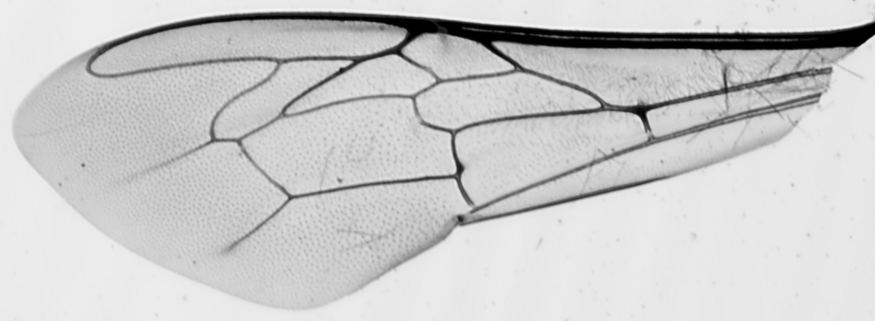Newbattle Bee Academy – 17 Nov 2018
First of all, a note about the Bee Academy at Newbattle Acdemy: what a wonderful place for a workshop. For those of you who haven’t visited, it’s a beautifully restored wooden hut, adjacent to the main college building, built for military purposes in the run up to WWII. It’s now a cosy space – helped by the huge, well stacked wood burner! – well equipped for events such as this and home to an impressive library of bee-related materials.
The workshop itself combined talks on the characteristics of the native dark bee (Apis Mellifera Mellifera) and several techniques to identify and score samples of bees, followed by hands-on laboratory sessions.
The lectures provided some excellent insights into the visual characteristics of AMM vs non-native species (Italian, Carniolan, Buckfast) and a detailed look at how to examine and interpret wing morphometry.
In the afternoon, we were provided with microscopes, small hand-held magnifiers and plenty of sample bees and had the opportunity to practise the visual identification techniques, score the various attributes, ask questions and compare notes.
It was clear that identifying native honey bees is not straightforward, particularly with the number of hybridised bees around, and none of the methods we looked at should be used in isolation. A good sample size is essential (30 bees was recommended) and the bees should be young, but not too young, and taken from close to the brood nest, to avoid sampling bees that have drifted into the colony.
We also heard from two breeding groups, one in Ochil Hills and one in the Cheviots, about their programmes. They are distinct in terms of scale, environment, organisation, queen rearing approaches and how long they’ve established, so it was fascinating (and encouraging) to hear about the different ways there are to establish successful breeding groups. (As a result, the trustees have decided to run a series of articles by different breeding groups in upcoming newsletters).
Of course, the workshop was also a great chance to meet fellow beekeepers, with around 24 attendees, including an encouraging number of new beekeepers.
Many thanks to the organiser and speakers – Kate Atchley, Gavin Ramsay, Jeff Baxter and John Durkacz – for sharing their time and knowledge. They are currently processing feedback from attendees, so they can continue to develop the course and make future events even better.

